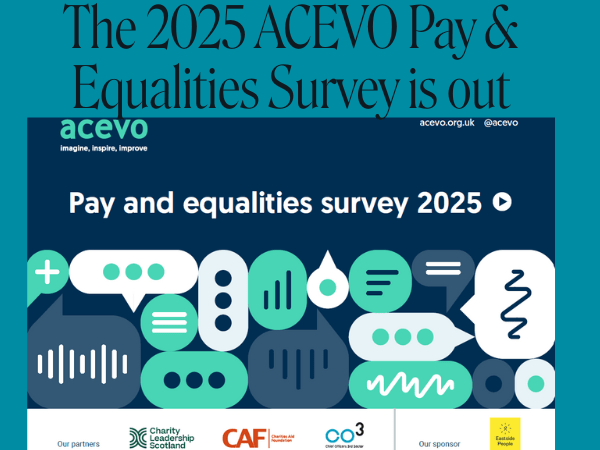What are the signs that your charity might need to close? Stone King Consultant, Clive Vergnaud, on the warning signals that could mean trustees face the difficult decision of charity closure.
Closing a charity is never an easy decision. For many trustees, it feels like an admission of failure – but in reality, recognising when a charity has reached the end of its natural life can be one of the most meaningful decisions a board can make. Acting early protects beneficiaries, staff, volunteers and the reputation of the charity. Acting too late could hurt beneficiaries and tarnish legacies.
- Financial warning signs
Money troubles are often the clearest signal that a charity is in difficulty. Persistent deficits with no credible plan to reverse the trend, dwindling reserves, and cashflow issues – such as difficulty paying staff, suppliers or HMRC – signal serious risk. Relying on reserves for day-to-day costs or losing major income sources without replacements can threaten viability. Since Covid, we have seen increases in the number of charities put at serious risk by the loss of one or two key funders or contracts.
- Operational warning signs
Charities exist to advance their charitable purposes for the public benefit but that becomes impossible when operations falter. Perhaps the social or regulatory landscape has changed too quickly; contracts can’t be met, staffing challenges or over reliance on one overstretched individual could all mean services can’t be delivered effectively. Poor risk management, such as outdated registers or weak safeguarding and compliance can expose charities to existential risk and is another serious warning threat to a charity’s viability.
- Governance and leadership warning signs
Even a financially stable and operationally successful charity can be in trouble if governance breaks down.
Trustee disengagement – such as poor board attendance or reluctance to take on key roles – is a common issue, often worsened by difficulties in recruiting trustees. If the charity cannot attract the right trustees, the board won’t have the right skills and expertise to navigate an increasingly complex (funding, legal, political, cultural, etc) environment.
Leadership disputes – among trustees or between the trustees and the senior management – can distract from operations, engulf significant resource and seriously erode goodwill both within the organisation and with the public. But even without getting to that level of severity, disconnects between the board and senior management can result in the board not having a sufficient handle on what is happening within the charity and the management not having the benefit of the board’s strategic oversight – which can lead to compliance failures or mission drift.
- Reputational and external warning signs
A charity that faces declining public trust, negative media coverage or funders withdrawing support should treat this as an urgent signal. Sometimes, reputational damage is recoverable – but in other cases, winding down may be the most ethical way to protect the cause and its beneficiaries.
- Or none of the above…
Even if none of these indicators are showing, closure could just be the right thing to do. The duty of a charity trustee is to think of what is best for beneficiaries not just for the charity. It may be that your charity’s services are no longer required. Or if beneficiaries would be better served by another charity, what may make the most sense is to redirect remaining resources towards ensuring a smooth transition for beneficiaries so that their needs will continue to be met. If the charity is doing well but long-term prospects are uncertain, assets and activities could be transferred to a more stable charity on the condition that they continue to deliver services to beneficiaries in the long-term (effectively a merger/takeover).
- Strategic impasse
When trustees have explored all options yet no viable plan exists, closure may be the most responsible choice. The Charity Commission expects trustees to act prudently and in the charity’s best interests, which can mean closing with integrity and ensuring remaining assets support similar charitable purposes.
An orderly wind-up, conducted transparently and with proper planning, secures the best outcomes for beneficiaries and allows the charity’s remaining assets (if any) to be used for similar charitable purposes elsewhere. This ensures that the mission continues, even if the organisation itself does not.
Closures – especially where they involve a merger with another charity – need to be explored early, to allow time for proper planning and, where necessary, negotiation. Planning or entering discussions too late often limits options and reduces the chances of a successful outcome. The most acute example of this is waiting until the charity is nearing insolvency to make a plan. At this stage, trustees’ primary duty shifts from advancing charitable purposes to protecting creditors’ interests, significantly limiting the scope of decision-making and potential deals. At the point where insolvency practitioners are involved, the aim is to liquidate the valuable parts of the charity and its assets to enable creditors to be paid.
Closing with integrity
Knowing when to close is as difficult a decision as trustees can be required to take. Years, sometimes a lifetime, of volunteering, commitment and loyalty to the charity, its people and its beneficiaries, can come up against harsh financial, operational and other realities. Trustees have a duty to protect the charity’s assets and to safeguard its people – but ultimately they do so as stewards for the purposes and beneficiaries those assets are meant to serve.
If your board is beginning to see several of the warning signs outlined above, it may be time to pause and reflect. Seeking professional advice early – from accountants or solicitors or other specialist advisors – can help you navigate the next steps calmly and lawfully.
Sometimes the bravest and wisest thing trustees can do is to close with integrity, leaving a legacy of good governance and public benefit rather than decline and crisis.
Stone King were sponsors of the governance strand at the 2025 Festival of Trusteeship.
Clive is an experienced charity & social enterprise lawyer, advising charities, social enterprises, purpose-led businesses and other public benefit organisations on a wide range of operational, governance, regulatory, constitutional and transactional matters.










